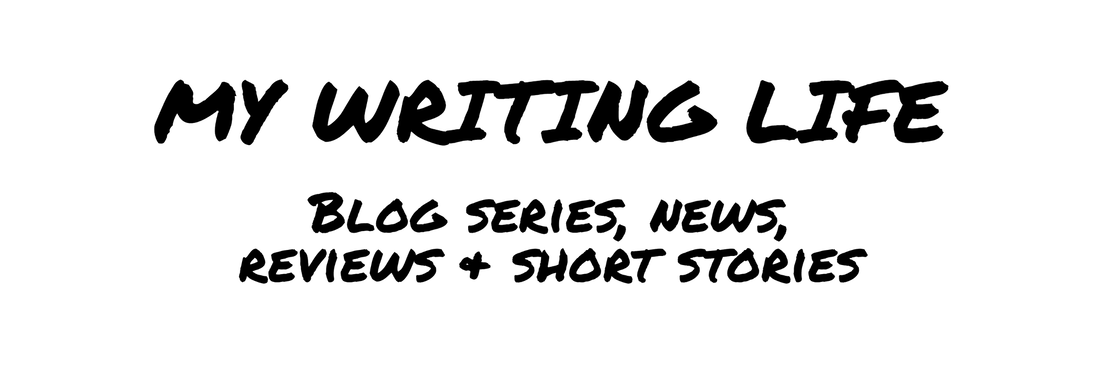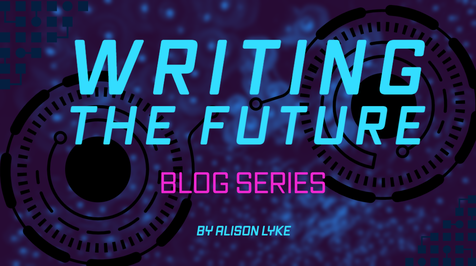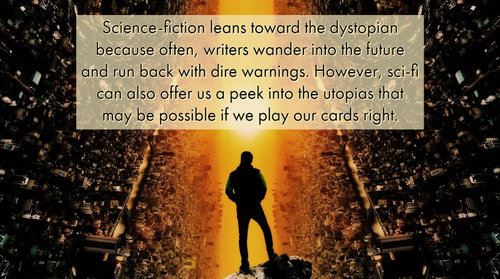|
This is the #4 post in blog series on writing speculative science fiction. It’s from a workshop I conducted at Writers & Books in February 2020. In an earlier blog in this series, I said technology is inert if you don’t use it. But unused tech isn’t a reality, and there’s often a direction to take- a choice that goes hand in hand with the invention. Nuclear fusion can be used for cheap power or to destroy whole countries. Social media can uplift and connect, or it can spread misinformation and lower self-worth. Speculating on the direction of tech use helps shape the actual course of the tech once it’s adopted. Ancient religious texts, philosophical dogma, even the proclamations of rambling 60’s beat poets have little bearing on our current world, which is dominated by hyper-fast wi-fi and 24-hour connection. Here, sci-fi writers become philosophers. We look to them to present a possible future and to help decide if that’s what we’d like our world to look like. Science-fiction leans toward the dystopian because often, writers wander into the future and run back with dire warnings. However, sci-fi can also offer us a peek into the utopias that may be possible if we play our cards right. The best work provides outcomes that are both positive and negative. This is the most realistic because it’s true to how things work out – nuclear fusion is both, social media is both. Asimov sought to present a future where we lived side-by-side with A.I. in mutually supportive relationships. He aimed to foster respect for this new kind of intelligence as a counter to the popular stories of evil robots rising up and overtaking humanity. Asimov’s ideas have been around for decades and it’s possible, if not probable that his philosophies regarding the respect and care of A.I. are reflected in the development of the technology.
Of course, the advancement of helpful androids is to everyone’s benefit, especially the people who stand to benefit financially from their creation. Scientific speculation is often tied tightly to the soul of American consumerism. With only a little nudge, you can dream up things that people want. Watchers of the original Star Trek dreamt of the day when they could see the person on the other end of the telephone, just like an angry admiral popping up on the screen to admonish Kirk for his latest tawdry escapade. Or, years later, viewers saw and coveted the all-in-one portable tablet computers on the show’s successor, The Next Generation. The capitalist version of sci-fi speculation may be the path of least resistance. You dream up a product you’d like and imagine what the world would be like if everyone had access to it – be it flying cars, self-cleaning clothes, or an immorality serum.
0 Comments
Leave a Reply. |
Alison Lyke
Categories
All
Archives
November 2022
|



 RSS Feed
RSS Feed
